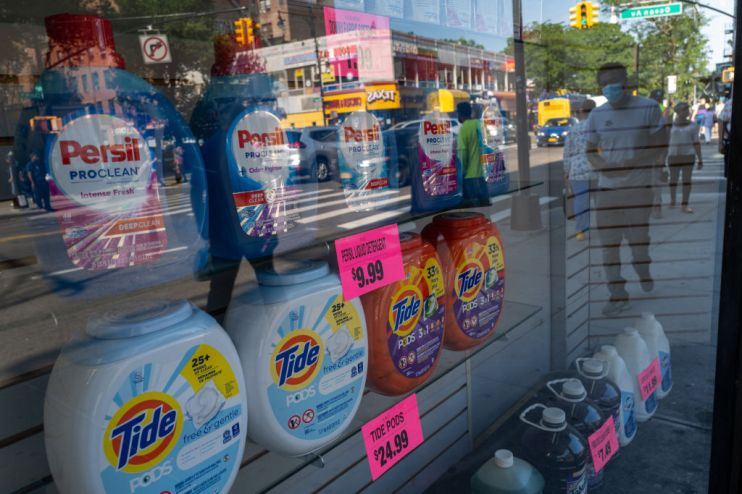US inflation eases for seventh straight month but pace of decline loses momentum in headache for Fed

US inflation eased for the seventh month in a row in January, but the pace of decline is beginning to level off, official figures out today reveal.
The pace of price increases in the world’s largest economy on an annual basis fell to 6.4 per cent, down from 6.5 per cent, according to the US Bureau of Labor Statistics.
Over the last month, prices increased 0.5 per cent, beating Wall Street’s expectations and climbing from a 0.1 per cent fall.
The new figures illustrate that the velocity of price pressures easing is losing momentum after higher petrol and energy prices have broadly dropped out of the numbers.
Core inflation – which strips out food and energy prices and provides a more accurate picture of underlying price tension in an economy – ran at 5.6 per cent in January, also topping analysts’ forecasts.
US Federal Reserve chief Jerome Powell and the rest of the federal open market committee are likely to take note of the deceleration in price increases as a signal that further interest rate hikes may be needed.
American rates have climbed at the quickest pace since the early 1980s, with the Fed bumping borrowing costs 450 basis points higher since March last year, including multi outsized 75 basis point increases, to a range of 4.5 per cent and 4.75 per cent.
The full force of that aggressive tightening cycle has yet to feed through to the economy, meaning the Fed is walking a fine line between heaping too much pressure on households and businesses and taming inflation.
“Alongside the apparent resilience of real economic growth at the start of this year, that will keep the Fed on course to continue raising rates over the coming meetings,” Andrew Hunter, senior US economist at consultancy Capital Economics, said.
Central banking bigwigs are seemingly approaching the end of their respective rate hike campaigns after doing most of the heavy lifting in 2022. Inflation is expected to decline rapidly this year across rich economies.
While new figures out tomorrow are likely to show the cost of living stayed in the double digits, the Bank of England reckons it is poised to more than halve to four per cent by the end of the year.
UK growth is expected to shift into reverse for most of this year, which should naturally push down inflation as households and businesses cut spending. As a result, most analysts reckon the Bank will only add one more rate hike to its 10 successive increases in March at 25 basis points.